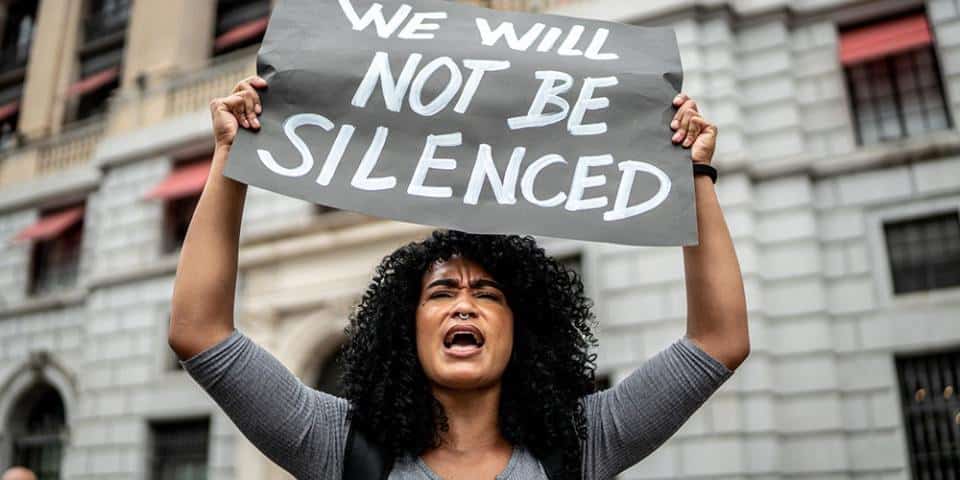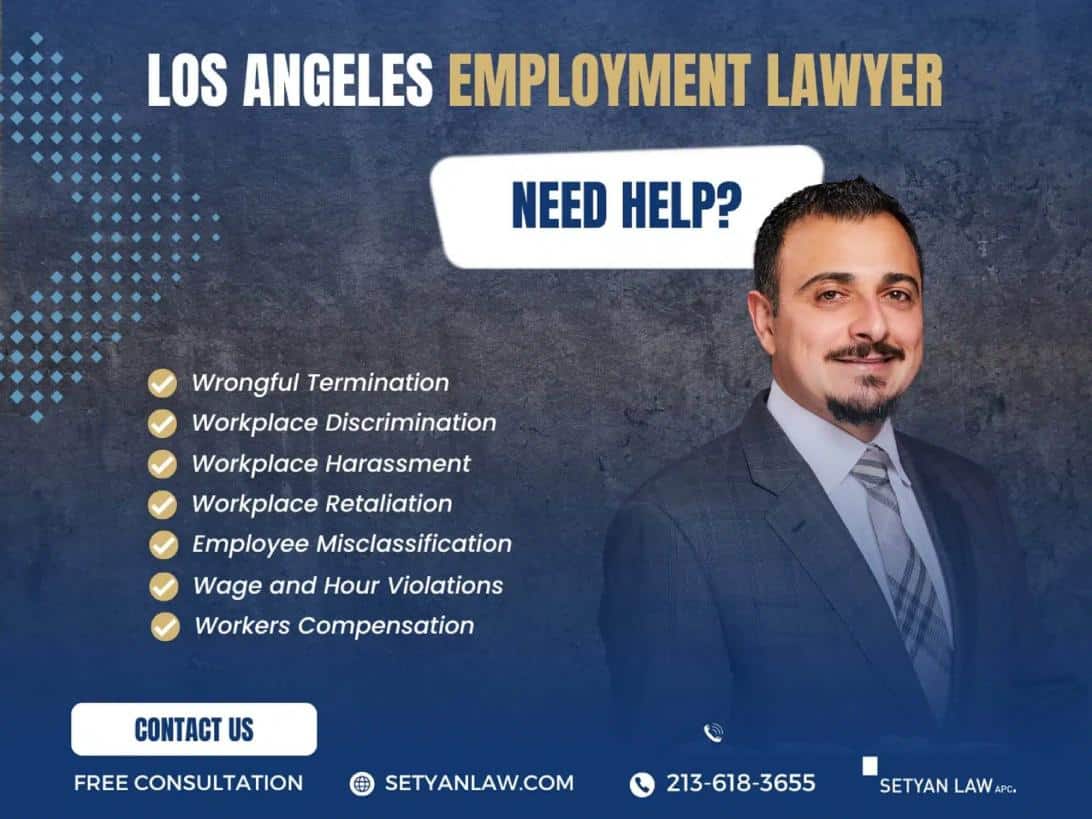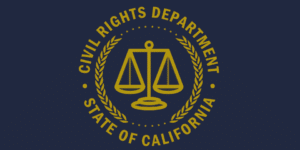Updated October 3, 2025
Freedom of Speech in the Workplace [2026 Guide]
Freedom of speech in the workplace rarely works the way most employees think it does. Many professionals mistakenly believe they can say whatever they want at work without consequences, confidently citing their "First Amendment rights" when challenged.
However, the reality differs significantly from this common belief. Contrary to popular understanding, constitutional free speech protections don't generally apply to private employment situations. Despite this fact, employees do have specific legal protections for certain types of workplace communication—protections that many employers conveniently fail to mention.
Throughout this guide, we'll examine what speech is actually protected at work, which federal and state laws safeguard employee expression, and how social media complicates these rights. You'll discover exactly what employers can and cannot do when restricting workplace communication, giving you practical knowledge to navigate this often misunderstood area confidently.
What the First Amendment Really Covers
The First Amendment states that "Congress shall make no law…abridging the freedom of speech." Those first five words reveal a crucial limitation – constitutional free speech protections specifically restrict government action, not private entities or individuals [1].
Why it doesn't apply to private employers
Most American workers mistakenly believe the Constitution shields them from workplace speech restrictions. Yet, the First Amendment fundamentally protects citizens from government censorship, not from private employer policies [2].
For private-sector employees, this means your employer can legally restrict your speech, establish communication policies, and even terminate employment based on what you say [3]. Furthermore, this remains true regardless of whether your speech occurred at work or during personal time, or whether it was political or non-political in nature [1].
Private employers maintain broad discretion to set workplace speech rules as long as they implement them consistently and without discrimination [1]. Nevertheless, certain exceptions exist where other federal laws specifically protect particular types of employee expression – notably, discussions about working conditions under the National Labor Relations Act and protected opposition to discrimination under civil rights laws [1].
How it applies to public sector employees
Public employees (those working for federal, state, or local government entities) stand in a different position since they work for the government itself – the very entity the First Amendment restricts [4]. Teachers and staff at public schools, colleges, and universities also qualify as public employees [4].
The Supreme Court established in landmark cases that public employees retain some First Amendment rights, but these rights must be balanced against the government's interest in efficiently providing public services [5]. This principle emerged from Pickering v. Board of Education (1968), where the Court ruled a teacher could not be fired for writing a letter to a newspaper criticizing school officials [5].
Courts apply what's known as the Pickering-Connick test to determine if public employee speech deserves protection [5]. Under this framework:
- The speech must address a matter of "public concern" (political, social, or community interest) rather than a personal grievance [4]
- The employee must speak as a private citizen, not as part of official job duties [4]
- The speech interest must outweigh any workplace disruption it causes [4]
Notably, in Garcetti v. Ceballos (2006), the Supreme Court clarified that when public employees make statements pursuant to their official duties, they are not speaking as citizens for First Amendment purposes [6].
Common misconceptions employees have
Many workplace speech misunderstandings persist among both private and public sector workers:
- Misconception #1: The First Amendment protects all workplace speech [2]
- Misconception #2: Complaints about workplace conditions are always protected [2]
- Misconception #3: Social media posts made off-duty can't impact employment [2]
- Misconception #4: False accusations are never legally protected [2]
Employees often incorrectly believe that "freedom of speech" means freedom from all consequences for their expression. In reality, even public employees' speech is protected only when they speak as citizens on matters of public concern [6]. Additionally, many don't realize that offensive speech targeting individuals based on racial, ethnic, or religious identity may still be grounds for discipline, even for public employees [7].
While Connecticut represents a rare exception where a specific state statute extends constitutional speech protections to private-sector employees [2], most private employees nationwide have no constitutional speech rights at work. Instead, they must rely on specific federal and state laws that protect certain narrow categories of workplace expression.
Federal Laws That Protect Employee Speech
Beyond constitutional considerations, employees benefit from three primary federal legal frameworks that protect certain forms of workplace speech. These statutes create specific safeguards that many employers conveniently fail to mention when establishing speech policies.
National Labor Relations Act (NLRA)
The NLRA stands as the most important federal law protecting workplace speech, applying to both union and non-union private-sector workplaces alike [8]. Passed in 1935, this landmark legislation makes clear that it is United States policy to encourage collective bargaining by protecting workers' full freedom of association [8].
Section 7 of the NLRA guarantees employees "the right to self-organization, to form, join, or assist labor organizations, to bargain collectively… and to engage in other concerted activities for the purpose of collective bargaining or other mutual aid or protection" [8]. Consequently, employers cannot interfere with, restrain, or coerce employees exercising these rights [9].
Protected "concerted activities" extend beyond traditional union organizing. Even a single employee's speech receives protection when there's an implicit appeal for coworker support [5]. For instance, a companywide reply-all email criticizing a new vacation policy could qualify [5]. Likewise, discussions about compensation, creating a workplace newsletter, or picketing in public typically fall under NLRA protection [5].
Nevertheless, this protection has limits. The NLRA doesn't shield "vitriolic attacks" demonstrating "detrimental disloyalty," such as public criticism of an employer's product calculated to harm the company's reputation [5]. Moreover, managers and independent contractors remain outside NLRA protection [10].
Title VII and anti-discrimination laws
Title VII of the Civil Rights Act prohibits employment discrimination based on race, color, religion, sex, and national origin [3]. This law creates another critical speech protection by forbidding retaliation against anyone who opposes unlawful discrimination or participates in related investigations [5].
Protected "opposition" includes internal complaints about discrimination or supporting colleagues who file such complaints [5]. For example, an employee who speaks out against racially discriminatory hiring practices cannot legally be fired for that speech.
In fact, the Equal Employment Opportunity Commission (EEOC) enforces laws prohibiting discrimination based on additional characteristics including pregnancy, age (40+), disability, and genetic information—along with retaliation against employees opposing such discrimination [11].
Whistleblower protections under OSHA and others
The Occupational Safety and Health Administration's (OSHA) Whistleblower Protection Program enforces provisions from more than 20 federal laws protecting employees from retaliation when reporting workplace violations [12]. These protections cover workers who raise concerns about various issues including:
- Workplace safety and health violations
- Aviation, pipeline, or nuclear safety concerns
- Environmental protection matters
- Financial fraud or securities violations
- Food safety issues
- Health insurance reform concerns
Each statute provides specific timeframes for filing complaints, ranging from 30 to 180 days after alleged retaliation [12]. OSHA defines retaliation broadly, encompassing actions such as firing, demotion, benefit denial, harassment, reduced hours, blacklisting, or even subtle actions like isolation or mockery [12].
Besides OSHA's protections, twenty-five additional federal laws shield whistleblowers who raise concerns about everything from pipeline safety to securities fraud [5]. For public sector employees, the Office of Special Counsel handles claims of retaliation within the executive branch of the federal government [11].
These federal frameworks collectively provide substantial protections for specific types of employee speech, even though constitutional free speech rights remain limited in most workplaces.
State Laws That Go Further
While federal protections create a baseline for workplace speech rights, many employees find stronger safeguards under state laws. Approximately half of states have enacted legislation extending additional speech protections beyond what federal laws provide.
States with off-duty conduct protections
Five states stand out with particularly broad protections for employees' off-duty expression. Colorado, North Dakota, Montana, Connecticut, and New York prohibit discrimination based on lawful off-duty conduct, including speech, demonstrations, and other expressive activities [5]. California's Labor Code section 96(k) similarly protects "lawful conduct occurring during nonworking hours away from the employer's premises" [13].
Beyond these comprehensive statutes, numerous states have enacted more targeted protections. For instance, sixteen states explicitly prohibit employers from discriminating against employees based on their off-duty tobacco use [14]. Eight others—including Illinois, Minnesota, and Wisconsin—extend those protections to consumption of other lawful products [14].
Most recently, several states have begun passing laws specifically protecting off-duty marijuana use, with California, Minnesota, Montana, New York, and Washington leading this trend [15].
Political activity protections by state
Seven states offer explicit protection for political activities: California, Louisiana, Minnesota, Missouri, Nebraska, Nevada, and South Carolina [5]. California's Labor Code sections 1101 and 1102 go particularly far, prohibiting employers from controlling employees' political affiliations or coercing political activity [13].
Some states address political speech through specific prohibitions. Minnesota has enacted "captive audience" laws banning mandatory workplace meetings to discuss religious or political topics [16]. Others forbid employers from coercing employees to vote a certain way or keeping records of employees' political activities [16].
How state laws vary and why it matters
State law variations create a patchwork of protections that significantly impact workplace rights. Workers in Colorado enjoy broad protection for lawful off-duty activities unless they create "an actual or apparent conflict of interest" with employer business interests [17]. Conversely, in states without such laws, private employers retain much broader discretion.
These differences matter tremendously in practice. An employee posting political content on social media might be fully protected in New York but potentially fired for identical expression in states without off-duty conduct protections. Similarly, discussing political views at lunch might be protected in California but not elsewhere.
Enforcement mechanisms vary substantially as well. Montana represents the only state to entirely overturn employment-at-will, requiring "good cause" for termination [18]. This creates significantly stronger practical protection than states offering nominal protections with weak enforcement provisions.
Given these substantial variations, understanding your specific state's protections becomes essential for navigating workplace speech issues effectively.
Social Media and Off-Duty Speech Risks
The line between personal and professional lives blurs significantly in the digital age, with social media creating unprecedented speech risks for employees. The U.S. Supreme Court has recognized social media as "the vast democratic forums of the Internet" and "the most important places for the exchange of views" in today's world [7]. Yet these same platforms can quickly transform off-duty expression into workplace liability.
When off-duty speech becomes a workplace issue
Off-duty speech typically becomes a workplace concern under specific circumstances. First, when an employee's social media post goes viral, causing public backlash against their employer [19]. Second, when coworkers complain that an off-duty post creates a hostile work environment [6]. According to a 2024 Ninth Circuit ruling, an employer may be liable for a hostile work environment created by an employee's off-work social media posts, as "even if discriminatory conduct occurs wholly offsite, it remains relevant to the extent it affects the employee's working environment" [6].
The repercussions extend beyond legal liability. When employees post controversial content identifiable with their employer, organized boycotts, workplace disruption, and reputational damage often follow [1]. As one legal expert notes, "the line between personal and professional spheres has blurred, and online speech can carry significant professional consequences" [1].
Protected vs. unprotected social media posts
Not all social media speech receives equal protection. Under the National Labor Relations Act, posts discussing workplace conditions, wages, or unionization efforts qualify as protected "concerted activity" [19]. Furthermore, posts involving whistleblowing or opposing discrimination may receive federal protection [2].
Conversely, posts containing "true threats," incitement to imminent lawless action, obscenity, or discriminatory harassment remain unprotected [20]. Additionally, posts that intentionally harm an employer's business interests or involve illegal activity typically fall outside protection [21].
How employers monitor and respond to online speech
Employer monitoring practices vary widely. According to a 2023 Monster survey, most employees consider employer social media monitoring "unethical" [6]. Nevertheless, only 26% of U.S. companies required employees to sign social media use policies as of 2022 [6].
Many states have enacted social media privacy laws prohibiting employers from accessing employees' non-public social media posts [2]. Generally, monitoring public accounts is permissible, whereas accessing private content requires consent [22].
In responding to problematic posts, employers must verify the speech isn't protected before taking action. Courts typically weigh an employee's right to lawful off-duty conduct against legitimate business interests [1]. Correspondingly, documented workplace disruption or reputational harm strengthens an employer's position should termination lead to litigation [1].
What Employers Can and Can’t Do
Establishing clear workplace speech boundaries remains essential for employers navigating the complex legal landscape of employee expression. Smart companies create policies that respect employee rights yet protect legitimate business interests.
Creating lawful workplace speech policies
Effective speech policies define clear communication standards without overreaching. Well-crafted policies typically:
- Establish respectful communication expectations
- Address both verbal and written communication
- Clarify social media guidelines
- Acknowledge protected speech categories
Policies should expressly permit discussions about working conditions, union activities, and protected discrimination complaints. Simultaneously, companies can appropriately restrict speech that genuinely disrupts business operations, violates confidentiality, or creates hostile environments.
Avoiding retaliation and discrimination claims
Employers face substantial risk when taking adverse action against employees for protected speech. In essence, managers must understand the difference between protected opposition to discrimination (which cannot trigger discipline) and genuinely disruptive behavior.
Practically speaking, documenting legitimate business reasons for any employment decisions following employee complaints provides crucial protection. Furthermore, reviewing all disciplinary actions with legal counsel helps identify potential retaliation claims before they arise.
Training managers to handle speech issues fairly
Manager training fundamentally shapes workplace speech outcomes. Effective training programs educate supervisors about protected categories of speech and establish consistent response protocols. This training should emphasize recognizing protected "concerted activity" discussions and legitimate whistleblower concerns.
Documenting and enforcing policies consistently
Inconsistent policy enforcement creates significant legal exposure. Companies must maintain thorough documentation of speech-related incidents and demonstrate even-handed application of policies across all employees regardless of protected characteristics. Ultimately, consistency in application matters as much as the policy language itself.
Conclusion
Understanding workplace speech rights requires looking beyond popular misconceptions about the First Amendment. Despite what many believe, constitutional protections rarely shield private-sector employees from speech-related consequences. However, employees still possess significant legal protections through federal laws like the NLRA, Title VII, and whistleblower statutes that safeguard specific types of workplace communication.
State laws additionally expand these protections, though they vary dramatically across jurisdictions. Colorado, New York, and California stand among states offering robust safeguards for off-duty conduct and political expression, while others provide minimal protection beyond federal baselines.
Social media further complicates workplace speech rights. What employees post online during personal time can indeed affect their professional lives. Therefore, understanding which posts receive legal protection proves essential for anyone navigating today's interconnected professional environment.
Employers must balance legitimate business interests against employee rights when developing speech policies. Consistent enforcement and proper documentation remain crucial for companies seeking to avoid discrimination claims while maintaining appropriate workplace standards.
Knowledge truly equals power when it comes to workplace speech rights. Armed with accurate information about what speech receives protection under various laws, employees can express themselves more confidently while minimizing unnecessary risks. Equally important, employers benefit from establishing clear, legally compliant policies that respect protected expression while addressing legitimate business concerns.
The gap between perceived and actual speech rights at work will likely persist. Nevertheless, both employees and employers who understand these nuanced protections can create workplaces where communication flows freely within appropriate legal boundaries.
References
[1] – https://www.wshblaw.com/news-the-intersection-of-social-media-political-expression-and-employment-law-navigating-an-emerging-trend-in-workplace-discipline
[2] – https://www.littler.com/news-analysis/asap/politics-workplace-and-risks-social-media
[3] – https://www.eeoc.gov/statutes/title-vii-civil-rights-act-1964
[4] – https://www.fmr.law/blog/2025/february/public-employees-and-free-speech-rights-protecte/
[5] – https://www.maynardnexsen.com/publication-no-the-first-amendment-doesnt-apply-at-work-but-other-laws-protect-some-employee-speech
[6] – https://www.forbes.com/sites/michelletravis/2024/08/13/employers-risk-harassment-lawsuits-from-employees-social-media-posts/
[7] – https://uwm.edu/freespeech/faqs/what-first-amendment-protections-exist-for-speech-on-social-media/
[8] – https://www.nlrb.gov/guidance/key-reference-materials/national-labor-relations-act
[9] – https://www.nlrb.gov/about-nlrb/rights-we-protect/the-law/interfering-with-employee-rights-section-7-8a1
[10] – https://www.laborandemploymentlawinsights.com/2025/09/when-employee-speech-crosses-the-line-considerations-for-private-employers-responding-to-polarizing-events/
[11] – https://www.whistleblowers.gov/about-us
[12] – https://www.osha.gov/sites/default/files/publications/OSHA3638.pdf
[13] – https://www.cdflaborlaw.com/blog/the-challenges-and-risks-when-private-employers-regulate-employees-off-duty-conduct-in-california
[14] – https://natlawreview.com/article/state-employment-law-several-states-protect-employees-lawful-duty-activities
[15] – https://ogletree.com/insights-resources/blog-posts/off-duty-conduct-protections-for-employees-4-20-celebrations-a-look-at-the-high-points-of-a-few-states-marijuana-laws/
[16] – https://www.fredlaw.com/alert-navigating-employee-political-speech-and-expression-in-the-workplace-in-an-election-year-and-beyond
[17] – https://ogletree.com/insights-resources/blog-posts/politics-in-the-workplace-a-state-by-state-guide-to-help-employers-survive-the-presidential-election/
[18] – https://www.epi.org/unequalpower/publications/free-speech-in-the-workplace/
[19] – https://www.fisherphillips.com/en/news-insights/politics-protests-and-posts.html
[20] – https://www.ndsu.edu/deanofstudents/freespeech/protections
[21] – https://www.dpf-law.com/articles/regulating-social-media-in-the-workplace
[22] – https://www.ferretly.com/blog/how-do-employers-legally-monitor-employees-social-media
If you need employment litigation, call Setyan Law at (213)-618-3655. Free consultation.






